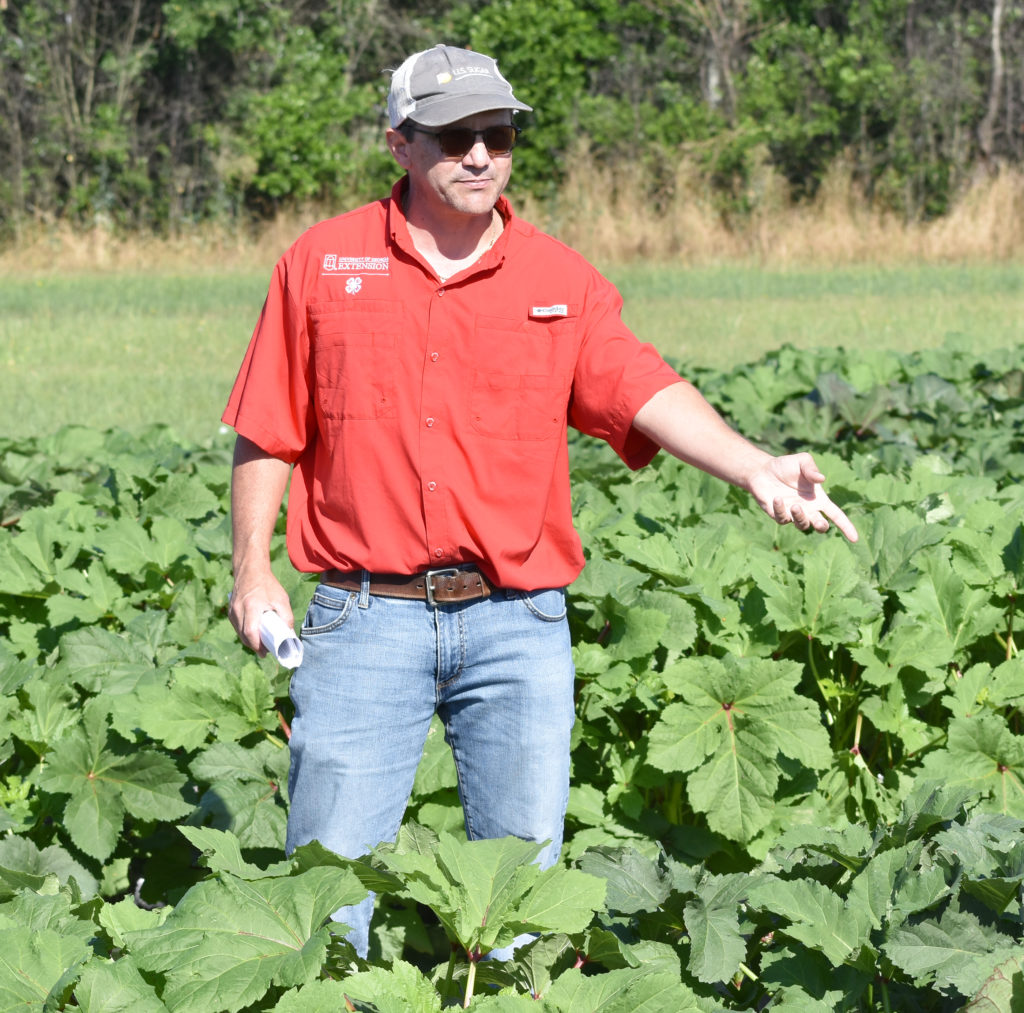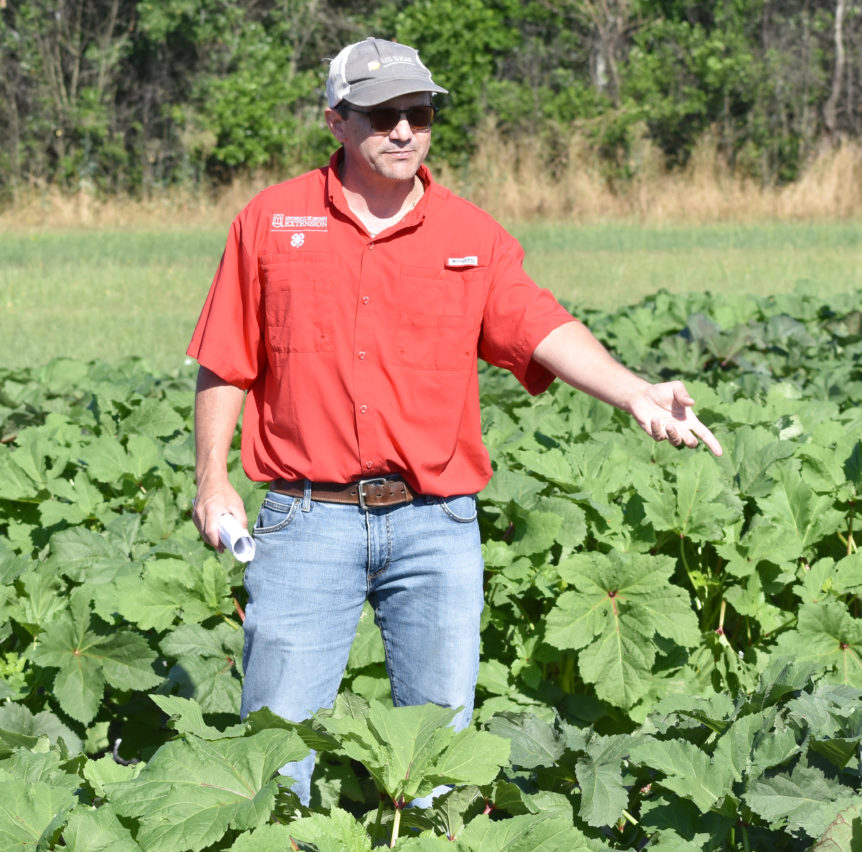
By Clint Thompson
Vegetable research was the subject of a recent Extension agent training at the University of Georgia (UGA) Tifton Campus. One crop that Ted McAvoy, UGA Extension vegetable specialist, is currently focusing on is okra. He spoke about its significance for Georgia growers.
“It’s the first time and I’m very excited about it. When I interviewed with the University of Georgia, I said I was going to explore alternative crops for Georgia vegetable growers. Okra is the first one I’ve done as far as that,” McAvoy said. “Obviously, it’s a southern favorite but it’s also very popular in Asian countries. The idea is, can we grow different crops that have ethnic markets that are highly perishable? Instead of growing them overseas, can we grow them here and ship them to markets across the eastern U.S.?”
Basics of Production
McAvoy’s focus is the basics of okra production, especially since there has not been much research conducted on the crop in the Southeast. He is utilizing a Georgia Farm Bureau grant to conduct the research.
“There’s not a lot of commercial acreage at all. Nematodes are a big issue. They have to be picked frequently, otherwise they get woody,” McAvoy said. “We’re looking at variety and planting method. We’ve got six varieties. Four green okra; two are red pot okra, and we’ve got two planting methods; either transplant or direct seed. Typically, okra is direct seeded, but most of our other vegetable crops; pepper, tomato, you name it; we transplant, and we know the advantages of that.
“You’re getting better stand establishment, earliness and you could outcompete weeds. We’re looking at that with okra. It’s not typically done. Usually they direct seed, overseed and thin later. We’re seeing if we can save seed and get good stand establishment there; earliness and better production.”
McAvoy is also teaming with nematologist Intiaz Chowdhury to screen for root knot nematode in greenhouse to see if there are better varieties.
One thing is evident from the early research is that Clemson Spineless – a preferred variety that doesn’t have any spines – is not yielding as well as Jambalaya 2.0.










